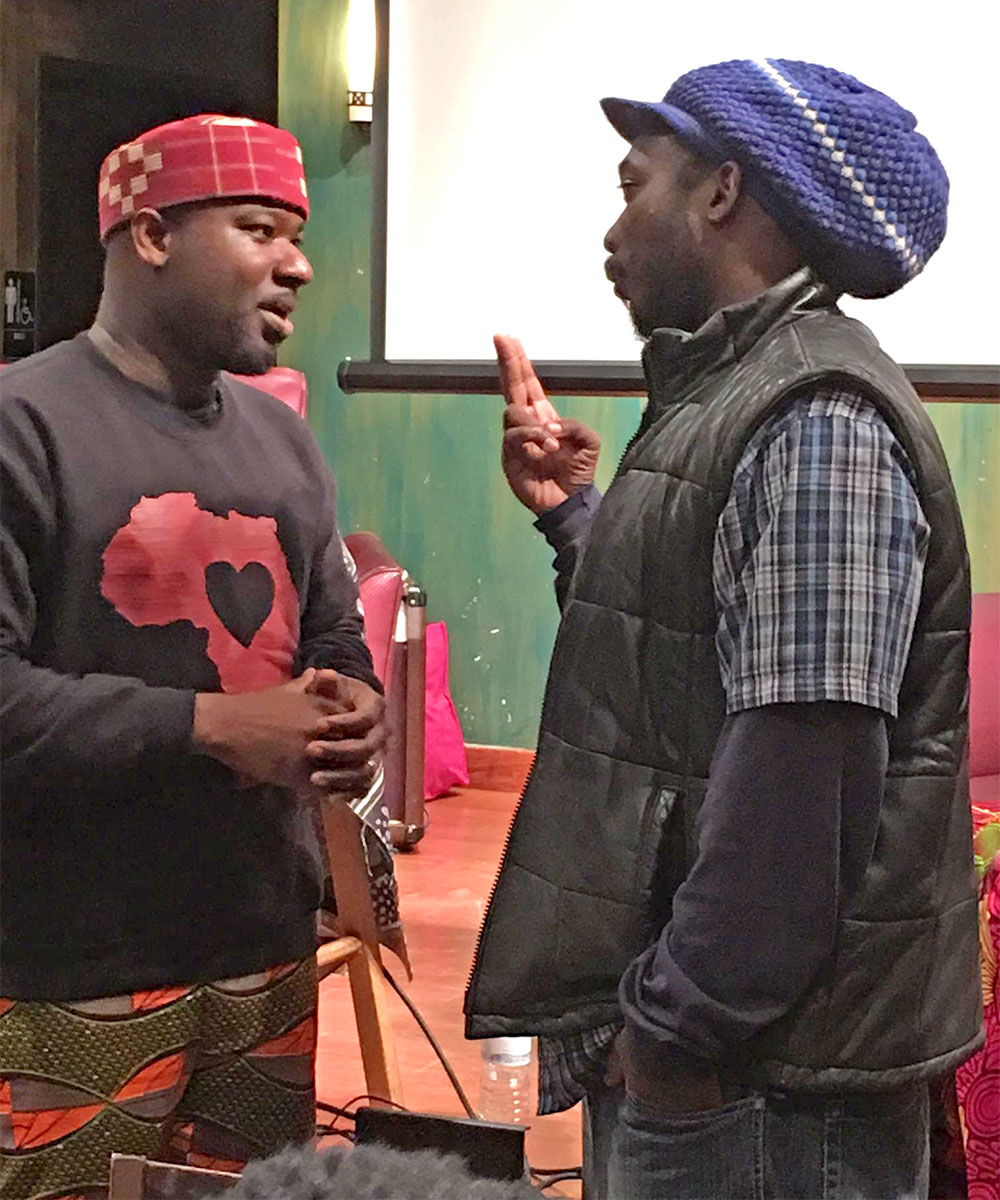
Blitz the Ambassador meets with a fan following his speech. "Before and after a show people would be talking," Blitz said. It is important to establish forums with fans. (Staff photo by Bennett Sprinkle)
Hip-hop played softly in the background and the smell of roasted coffee beans filled the air at the Beyu Caffe, where a packed house was waiting to hear from Ghana-born rapper Blitz the Ambassador.
Blitz the Ambassador, whose real name is Samuel Bazawule, spoke to the crowd Tuesday about the importance of positive hip-hop for black communities from Africa to Durham.
“Music in general creates a platform where people can get together and dialogue,” he said. “That’s a critical part of problem-solving in any community. If there are no forums where dialogue is happening, you’re failing.”
Bazawule said rapping is a tool he uses to make a difference in the world.
“What used to happen with hip-hop was that the content led to forums,” Bazawule said. “Before and after a show, people would be talking.”
Bazawule recalled a time when his favorite rapper, Chuck D from the group Public Enemy, performed in Ghana. He cited this as a pivotal moment in his decision to follow his dream of becoming a rapper. However, he said rapping is just a tool he uses to make a difference.
Bazawule was a guest for the Beyu Be Community event and was joined in conversation by Angel Dozier, talent manager at the cafe and jazz club. Dozier said she understands the importance of spreading positive messages in the community.
“It’s important to kids. It’s important to all of us, but it is especially important for kids,” she said.
Dozier and Bazawule talked nonstop for almost two hours. Their passion reverberated through the room and applause rang out regularly.
“People are really, really human resources. We all bring a wealth of talent and natural ability. When we connect those things we grow together and elevate,” Dozier said.
The duo also spoke about serious issues that affect African-American communities. Bazawule said his travels as a rapper and activist give him insight in
to a wide variety of communities. He uses hip-hop to cross language barriers.
Bazawule addresses gentrification in a trilogy of music videos that include the songs “JuJu Girl,” “Shine,” and “Running.” The videos, shot in Ghana, Brooklyn and Bahia, Brazil, depict gentrification in different places across the world.
“Everywhere I go, black people are going through the same thing,” Bazawule said.
Bazawule believes that because people deal with injustice in similar ways across the globe, addressing the issues on a macro scale is the best way to unite communities.
Kellee Steele-Reams, a Durham resident and Beyu Caffe regular, said the event led her to download Bazawule’s albums and hone into his message. She said Bazawule’s universal approach was essential.
“This conversation is very important. It sparked me to actually go do research about Bahia and Ghana,” Steele-Reams said. “The core essence of hip-hop music has always told the absolute truth. It connects folks here in Durham with folks in Los Angeles and New York.”
Bazawule received a standing ovation at the end of the night. After the show, he took time to answer questions as fans lined up to meet him.
He had set out to use music to create dialogue—and in Durham, it worked.
For a printer-friendly version of this story, click here.